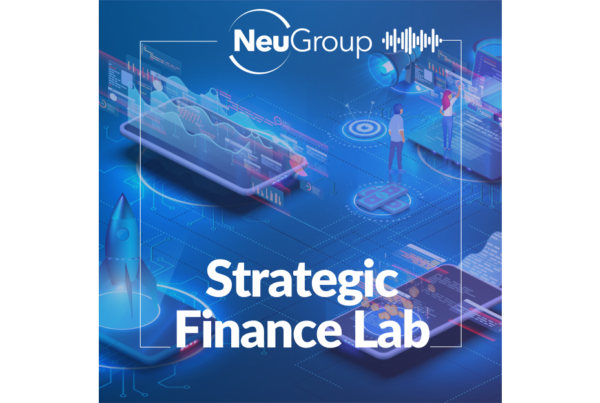
How one member’s forward-thinking team within treasury fuels payments innovation and business success.
Finance organizations reaching their full potential can play a critical role as companies explore new products, services and business models. That’s happening at one NeuGroup member company where a dedicated treasury team partners with products and payments groups to lead innovative banking and payments infrastructure initiatives that better support business requirements.
- At the inaugural session of the NeuGroup for Payment Strategy working group, representatives from sponsor Citi co-presented with a member of the corporate’s dedicated treasury team on the keys to a payment project’s success.
- Following the session, NeuGroup founder and CEO Joseph Neu said all finance orgs should have individuals or a team within treasury to serve this role, a point embraced by members.
A dollar’s journey. The company’s dedicated treasury team focuses on designing end-to-end efficient money flows, starting the moment funds leave a customer’s account—“the journey of the dollar,” as the member called it.
- To improve the payments infrastructure, the team collaborates with all stakeholders along the way, including business lines, cash management, corporate finance, accounts, payments and product engineering.
- The team’s projects include enabling payments in specific regions, eliminating inefficiencies in money flow and enabling faster payment rails from collection to disbursement.
- “The projects vary, but anything that touches money flow or bank accounts is something we get involved with and help structure a solution,” the member said.
- The team also gets involved if the company wants to introduce a new form of payment, meaning treasury will need to solve for risks—a cross-functional issue.
- “First of all, identify what you’re trying to achieve, and then work with the stakeholders,” the member said. “Structures like these would have several other stakeholders like tax and legal. Other teams would get involved who could define parameters around business needs and regulatory requirements.”
The need for payments innovation. A payment executive at Citi said the increasing digitization of businesses and the rise of direct-to-consumer models reflect the need for treasury teams to be involved early in the process of payments innovation.
- He highlighted the importance of managing counterparty risk, establishing strong relationships with payment providers, acquirers, and banks and having the right payment infrastructure in place—tasks that may not get done properly if treasury isn’t involved early in the process.
- “One best practice we’ve seen in the organization is to at least have a digital lead sitting in treasury who understands the entire ecommerce landscape and the considerations the payments teams are looking at,” he said.
- A member of Citi’s treasury and trade services group, emphasized the need for proper budgeting for corporates looking to support this role. “It can’t just be a side job, otherwise it doesn’t get the focus it requires,” he said.
Agile planning. Having clear objectives at the start is crucial, but the member also stressed the importance of flexibility to adapt to changing business requirements.
- “Identify the guardrails within which you are operating and then identify what you’re trying to solve for,” he said. “It may not be possible to solve for everything, and that’s okay.”
- If flexibility is built into the project from the start, it can evolve not only to accommodate unforeseen challenges, but also to change as technology improves—which is crucial in the rapidly shifting technological landscape.
- “You can always make changes if your infrastructure is scalable, resilient and flexible,” he said.
After the session, Mr. Neu added that payments is just one area where treasury needs to play a key role as companies adapt to change. Corporates may benefit from a policy where finance is informed about every new product, service and business model, as is the case with new legal entities and accounts.
- “But whether the business benefits depends entirely on what treasury does when so informed,” he said. “Are they helping the business succeed with the go-to-market strategy and ensure it can scale, with enterprise level controls being layered on as it does? Or do they just say no? The former defines success, the latter makes the business sorry treasury got involved.”


